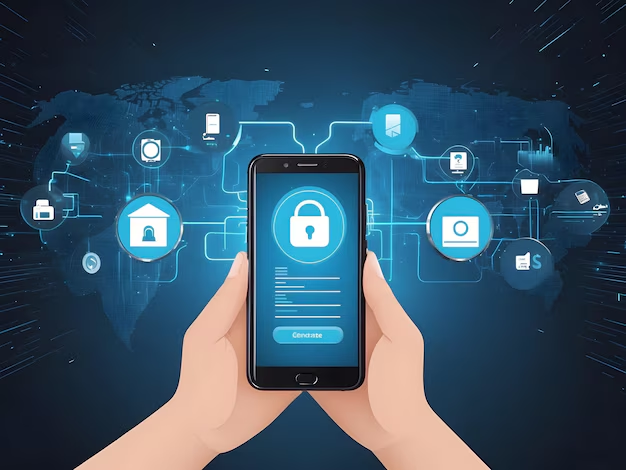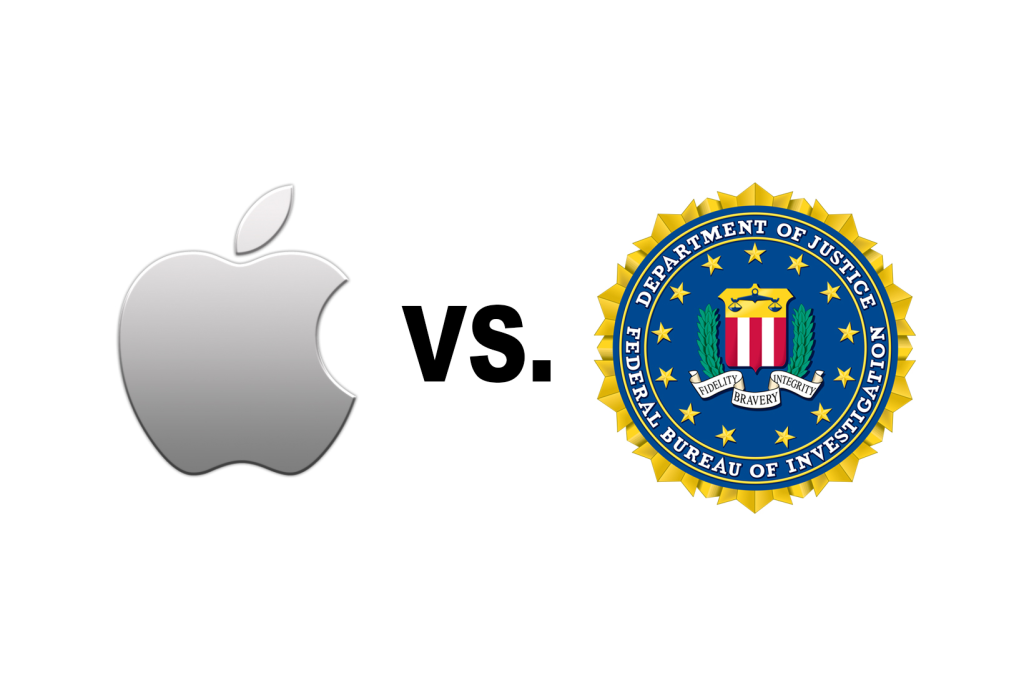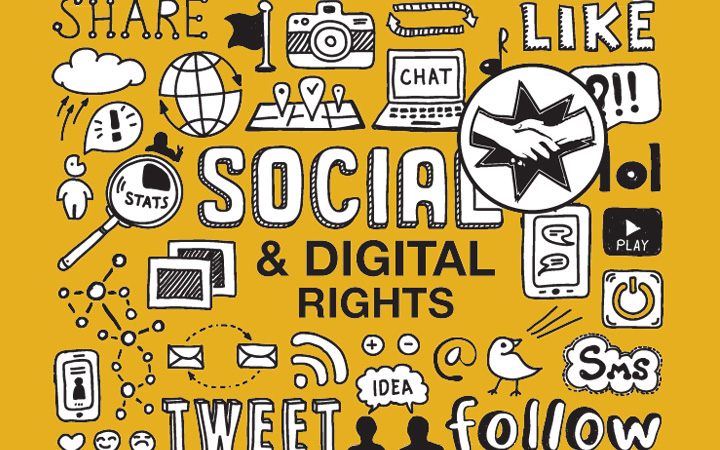
Image about “digital privacy” (2025)
Introduction
Now you can imagine this: you lost your mobile phone, which contained your photos, text messages, and banking apps. Fortunately, it was password-protected, and others could not open it. Now imagine another scenario: the government found that a terrorist’s mobile phone was locked, and they wanted Apple to help “open a backdoor” to check the terrorist’s mobile phone clues. What would you choose? To preserve everyone’s privacy, or to sacrifice some freedom for security? This is not a hypothesis. This is the question raised by the real case of “Apple vs. FBI” in 2016, which still affects our digital life today.
The core of this duel is a simple question, but behind it is a huge policy and social impact: In the name of public safety, should digital platforms be forced to help governments break encrypted devices? This is not just about a mobile phone, but about the privacy and data security of each of us when using technology products and who we are willing to let have access to these data.
In this blog post, I’ll walk you through the significance of this event, how it maps onto broader policy issues around privacy, security, and digital rights, and why each of us should care.

Image about “Apple VS. FBI” (2016)
Case Analysis: Apple VS. FBI
In December 2015, a serious shooting occurred in San Bernardino, California, killing 14 people. One of the attackers used an iPhone. The FBI thought that the phone might contain key clues, such as the motive for the attack or information about other accomplices, so they tried to unlock the phone. But the problem was that the encryption technology of this iPhone was too strong, and even Apple itself couldn’t open it. As a result, the FBI took Apple to court, demanding that the company create a custom version of iOS that would allow them to bypass the phone’s security system.
However, Apple refused. They thought it could be used by hackers to steal information from other Apple users. Tim Cook, Apple’s CEO, said that this was illegal and that if a “backdoor” was provided to the government, it would not be able to guarantee the security of all users (Yadron et al., 2016).
As a result, this incident triggered a heated discussion on the relationship between personal privacy and national security. Those who support the FBI believe that national security is the most important thing, and they need data to prevent more terrorist attacks. Those who support Apple believe that national security cannot be used as an excuse to disclose the personal privacy of all users. This incident made everyone think about whether personal privacy is more important or national security is more important.
Privacy is a right
When discussing digital rights and privacy security, we focus more on whether our data information has been leaked. We often think of privacy as “something I don’t want others to know”, but more importantly, we have the right to control our own information. As Flew (2021) mentioned, privacy is a basic human right. It includes not only the right not to be interfered with but also the right to manage our personal data and protect our dignity. In a nutshell, you have the right to decide who can see your content. But in today’s digital age, do we really have the right to control our own information?
When Apple was asked to develop a “backdoor” to access other people’s encrypted data, this was not only an Apple technology problem but a new problem: Does the government have the power to force you to hand over your private data? For example, the photos we post on social media will show data information such as location, and there are some default settings and user agreements of social platforms, which are inevitable privacy issues. Therefore, privacy is not absolute, and it must be balanced with other rights such as freedom of speech, the public’s right to know, and public safety (Flew, 2021).
In this regard, management should be strengthened. As Karppinen (2017) pointed out, privacy is not only a personal issue but also a social issue. If we allow the government to expand its right to monitor privacy in the name of “security”, more people will be harmed. As one of the world’s largest technology companies, Apple controls the personal privacy data of users around the world and will also face more legal and ethical issues. To avoid more incidents like Apple and the FBI, clear policies and governance plans should be needed to supervise the relationship between the government and companies. Therefore, as Nyst and Falchetta (2017) emphasized, the protection of privacy rights should be strengthened in the digital age. This not only includes protecting users from data leaks and surveillance but also requires the government to formulate clear and strict laws.
Apple refused to open a “backdoor” for the FBI to strictly abide by the privacy protection of users because once it is opened, it will cause a sense of crisis and distrust in the privacy of users around the world.
Security can’t be gained at the expense of privacy
Everyone knows that security is important. We don’t want our personal information to be leaked online, we don’t want to see terrorist attacks or crimes committed, and no one wants the bad guys to get away with it. Nowadays, the word “security” is always mentioned together with the right to privacy. In the case of “Apple vs. FBI”, the FBI wanted Apple to unlock an encrypted mobile phone that could hold important information about a terrorist attack. From a public safety standpoint, it sounds like a simple matter of unlocking a mobile phone. But that is not the case. This will raise questions about the security and privacy boundaries of users around the world.
Apple’s concern is that once they create an unlocking “backdoor”, this technology may be abused by people with bad intentions. This opens a gap in the privacy security of everyone, and it is not necessarily opened only for good people. Imagine that all iPhone users’ photos, messages, bank accounts, and other data may be at risk.
Can we accept sacrificing everyone’s privacy under the pretext of “security”? Security is very important, but we cannot allow the entire society to be monitored at any time just because of convenience or for the good of everyone. What we need is a method that can protect everyone’s privacy and ensure public safety at the same time, rather than asking everyone to choose between “privacy” and “safety”.
Do we have Digital Rights?
We seem to be in control of everything on our phones and enjoy the services and conveniences brought by digital platforms, such as sending messages, shopping, taking photos, and watching videos. But have you ever thought that when we use these services, do we really have rights?
Goggin (2017) mentioned that the so-called “Digital rights” are the basic rights we should have when using digital platforms. For example, the right to privacy, freedom of expression, the right to freely access information, and the right not to be monitored at will (Goggin et al., 2017). These sound like things that should be taken for granted, but many times we have no way to control them.
Take the case of “Apple vs. FBI” for example. The FBI asked Apple to help them develop a “backdoor” system so that they could unlock the iPhone of the suspect. On the surface, it sounds like it is for investigating the case, but Apple refused. The reason is simple. Once this “backdoor” is created, even if it is only used once, it will shake the trust of all users in the digital platform, because other institutions can also use this technology to monitor ordinary people anytime and anywhere.
For us, this is not just a privacy breach, but also a fear of “I can’t control my device” and “I am being monitored”. We are even more worried that our personal privacy will be exploited by other organizations. Once it is assumed that rights can be sacrificed at will and this technology is used once, it will not only affect this “Apple vs. FBI” case but also the whole society’s understanding and protection of digital rights.

Image about “Social & Digital Rights” (2024)
Who makes the rules?
In real life, rules are usually set by the government, and there are various regulatory mechanisms to ensure that these rules are enforced fairly and transparently. But have you ever wondered who sets the rules for those apps, social media, and search engines on the digital platforms we can’t live without every day? Have you ever thought about who decides what you see?
Suzor (2019) mentioned that platform governance is very critical. Because these platforms are not just tools for us to send messages, read news, and watch short videos, they “regulate” the relationship between us and the world. In other words, they determine how we view the world, whether we can speak, and what information we can access (Suzor, 2019). The rules set by digital platforms first analyze your preferences and then decide which content is recommended, which is hidden, and which is directly deleted. And these decisions are not made with the consent of our users.
In the case of “Apple vs. FBI”, if Apple makes an exception for the government once, the privacy of all users may be easily breached in the future, so Apple rejected the FBI’s application. In this regard, we can find that digital platforms are no longer just service providers but also owners of rights. This ability can not only affect governments but also the digital lives of users around the world. Therefore, the question is not “whether to make rules”, but whether we need a more open, transparent, and responsible digital policy and governance.
Conclusion
We do not deny the convenience brought by technology, but we cannot completely give up the pursuit of freedom and privacy while enjoying the convenience. Although the “Apple vs. FBI” case happened almost ten years ago, the problems it raised are still affecting us. In the digital age, privacy, security, and digital rights are issues that each of us needs to think about seriously. How can we find a truly fair balance between “security” and “privacy”?
Through this blog, we will find that digital platforms are not lawless, but they are not completely fair either. Privacy, data control, and freedom of expression should not be issues in the hands of only a few people but basic rights that each of us should care about and have a say in.
Yes, of course, security is important, especially when facing criminals or terrorist threats. But this cannot be a reason for the government to violate privacy at will. What we need is a transparent, controllable, and accountable digital governance system to make technology a tool to help and serve people rather than allowing people to be controlled by technology.
In the final analysis, digital rights have never been a distant technical issue. It exists in our daily lives, for example, in every action of unlocking mobile phones, sending WeChat, and watching short videos. Protecting privacy is protecting our sense of freedom and trust.
Reference:
Flew, T. (2021). Regulating Platforms. Cambridge: Polity, pp. 72-79. https://bookshelf.vitalsource.com/reader/books/9781509537099/epubcfi/6/24[%3Bvnd.vst.idref%3Dc03]!/4/2/6/4/3:1137[%20in%2Cto%20
Goggin, G., Vromen, A., Weatherall, K., Martin, F., Webb, A., Sunman, L., Bailo, F. (2017) Executive Summary and Digital Rights: What are they and why do they matter now? In Digital Rights in Australia. Sydney: University of Sydney. https://ses.library.usyd.edu.au/handle/2123/17587.
Karppinen, K. (2017) Human rights and the digital. In Routledge Companion to Media and Human Rights. In H. Tumber & S. Waisbord (eds) Abingdon, Oxon: Routledge pp 95-103. https://www.taylorfrancis.com/chapters/edit/10.4324/9781315619835-9/human-rights-digital-kari-karppinen?context=ubx&refId=c174ba09-57a2-42b2-951c-be2ec8c9ebca
Yadron, D., Ackerman, S., & Thielman, S. (2016). Inside the FBI’s encryption battle with Apple. The Guardian. https://www.theguardian.com/technology/2016/feb/17/inside-the-fbis-encryption-battle-with-apple
Lichtblau, E., & Benner, K. (2016). Apple fights order to unlock San Bernardino gunman’s iPhone. The New York Times. https://www.nytimes.com/2016/02/18/technology/apple-timothy-cook-fbi-san-bernardino.html
Nyst, C., & Falchetta, T. (2017). The Right to Privacy in the Digital Age. Journal of Human Rights Practice, 9(1), 104–118. https://doi.org/10.1093/jhuman/huw026
Suzor, N. P. (2019). ‘Who Makes the Rules?’. In Lawless: the secret rules that govern our lives. Cambridge, UK: Cambridge University Press. pp. 10-24. https://www.cambridge.org/core/services/aop-cambridge-core/content/view/6688999078ABFE0821E84D76A055BE70/9781108481229c2_10-24.pdf/who_makes_the_rules.pdf

Be the first to comment